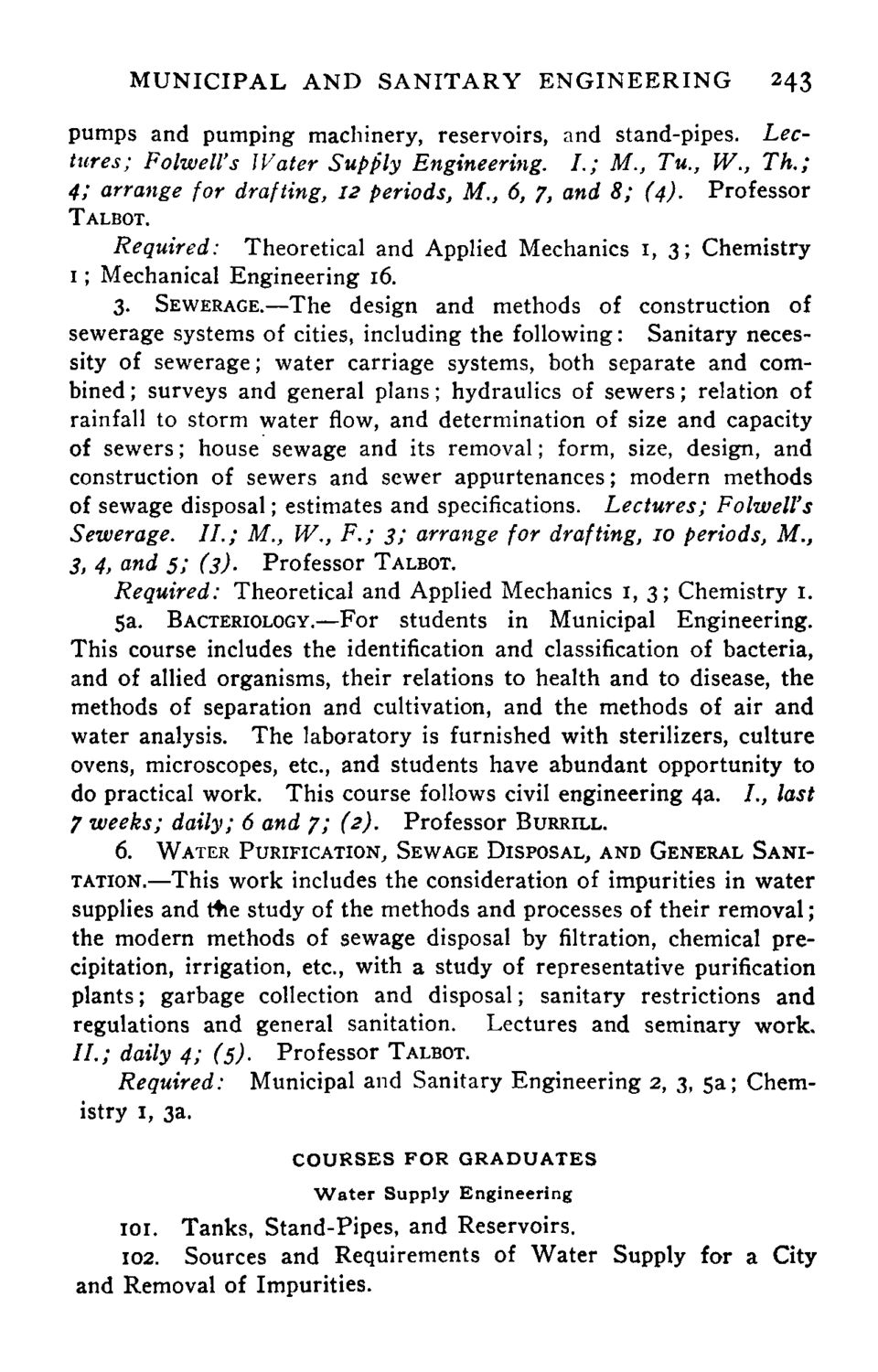| |
| |
Caption: Course Catalog - 1899-1900
This is a reduced-resolution page image for fast online browsing.

EXTRACTED TEXT FROM PAGE:
MUNICIPAL AND SANITARY ENGINEERING 243 pumps and pumping machinery, reservoirs, and stand-pipes. Lectures; Folwell's Water Supply Engineering. I.; M., Tu., W., Th.; 4; arrange for drafting, 12 periods, M., 6, 7, and 8; (4). Professor TALBOT. Required: Theoretical and Applied Mechanics 1, 3 ; Chemistry 1 ; Mechanical Engineering 16. 3. SEWERAGE.—The design and methods of construction of sewerage systems of cities, including the following: Sanitary necessity of sewerage; water carriage systems, both separate and combined ; surveys and general plans; hydraulics of sewers; relation of rainfall to storm water flow, and determination of size and capacity of sewers; house sewage and its removal; form, size, design, and construction of sewers and sewer appurtenances; modern methods of sewage disposal; estimates and specifications. Lectures; Folwell's Sewerage. II.; M., W., F.; 3; arrange for drafting, 10 periods, M., 3, 4, and 5; (3). Professor TALBOT. Required: Theoretical and Applied Mechanics 1, 3 ; Chemistry 1. Sa. BACTERIOLOGY.—For students in Municipal Engineering. This course includes the identification and classification of bacteria, and of allied organisms, their relations to health and to disease, the methods of separation and cultivation, and the methods of air and water analysis. The laboratory is furnished with sterilizers, culture ovens, microscopes, etc., and students have abundant opportunity to do practical work. This course follows civil engineering 4a. /., last 7 weeks; daily; 6 and 7; (2). Professor BURRILL. 6. WATER PURIFICATION, SEWAGE DISPOSAL, AND GENERAL SANI- TATION.—This work includes the consideration of impurities in water supplies and ttie study of the methods and processes of their removal; the modern methods of sewage disposal by filtration, chemical precipitation, irrigation, etc., with a study of representative purification plants; garbage collection and disposal; sanitary restrictions and regulations and general sanitation. Lectures and seminary work. / / . ; daily 4; (5). Professor TALBOT. Required: istry 1, 3a. Municipal and Sanitary Engineering 2, 3, sa; ChemCOURSES FOR GRADUATES Water Supply Engineering 101. Tanks, Stand-Pipes, and Reservoirs. 102. Sources and Requirements of Water Supply for a City and Removal of Impurities.
| |